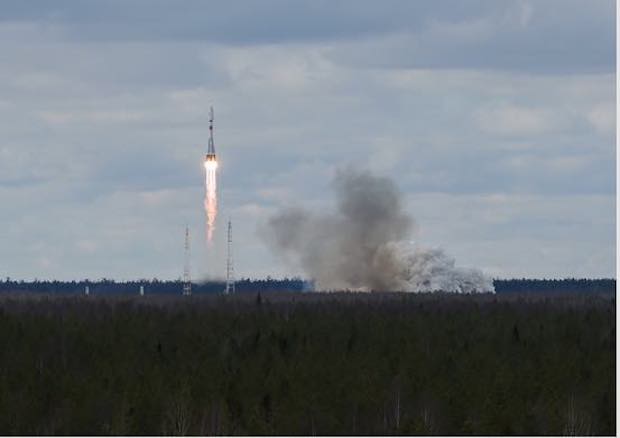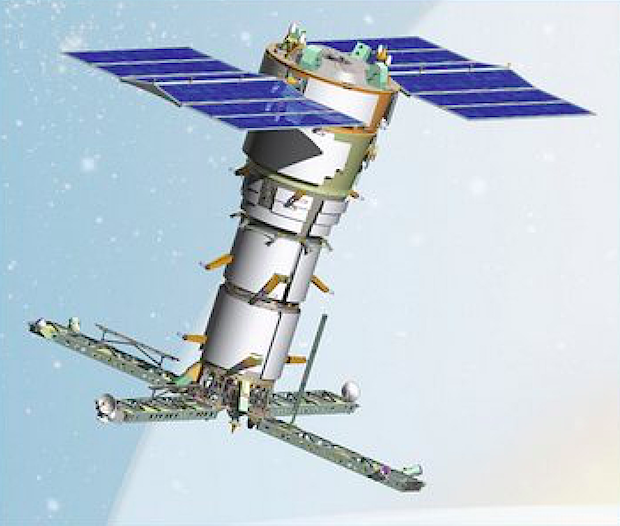Space News & Blog Articles
Russia launches Soyuz rocket with military spy satellite
 A Soyuz rocket lifts off from the Plesetsk Cosmodrome. Credit: Russian Ministry of Defense
A Soyuz rocket lifts off from the Plesetsk Cosmodrome. Credit: Russian Ministry of Defense
A new Russian spy satellite launched April 7 aboard a Soyuz rocket, likely embarking on a mission to identify and locate foreign military forces by tracking their radio transmissions.
The Russian Defense Ministry announced the launch April 7, and U.S. military tracking data later confirmed the mission placed a single payload into orbit.
A Soyuz-2.1b rocket carried the classified satellite into space from the Plesetsk Cosmodrome, a military-operated spaceport in far northern Russia. The kerosene-fuel rocket launched from a pad at Site 43 at Plesetsk, then headed northeast over Russian territory, shedding its four first stage boosters about two minutes into the mission.
The Soyuz second stage and third stage finished the job of injecting the Russian military spy satellite into orbit. Russian defense officials declared the mission a success, and U.S. military radars detected the satellite in an orbit between 148 miles and 559 miles (239-by-900 kilometers).
The orbit has an inclination, or ground track angle, of 67.1 degrees to the equator. The altitude and inclination match the orbital parameters of Russia’s Lotos S1 military satellites, but Russian officials did not identify the payload on the April 7 launch.
The new satellites was designated Kosmos 2554, keeping with the Russian naming scheme for military spacecraft.
 Artist’s illustration of a Lotos satellite. Credit: KB Arsenal
Artist’s illustration of a Lotos satellite. Credit: KB Arsenal
This email address is being protected from spambots. You need JavaScript enabled to view it. the author.
Follow Stephen Clark on Twitter: @StephenClark1.
When you subscribe to the SpaceZE News Feed, we will send you an e-mail when there are new updates on the site so you wouldn't miss them.

